|
|
|
|
In 2005, I travelled to the U.K. to cover the wedding of Prince Charles and Camilla Parker-Bowles. I remember being astounded by how well his sons, William and Harry, seemed to be handling what must have been a difficult day — and we now know that Prince Harry, in particular, was in a lot of pain during that period of his life, eight years after his mother’s death. Those wounds were still apparent in the interview Harry and his wife, Meghan Markle, conducted with Oprah Winfrey, in which they alleged a Royal Family member made racist comments and that the Duchess of Sussex was left feeling suicidal in the face of an onslaught of false and negative stories that appeared about her in the British tabloids.
Have the explosive allegations changed Canadian attitudes about the monarchy? Today in The Conversation Canada, Kimberley Ducey of the University of Winnipeg and Joe R. Feagin of Texas A&M University weigh in on Meghan’s experiences as a member of “The Firm” in advance of their upcoming book on the topic. They also conclude that even as Canadians grow disillusioned with the monarchy, that doesn’t mean they accept that the systemic racism experienced by Meghan actually exists.
Also today:
Regards,
|
Lee-Anne Goodman
Politics, Business + Economics Editor
|

|
|
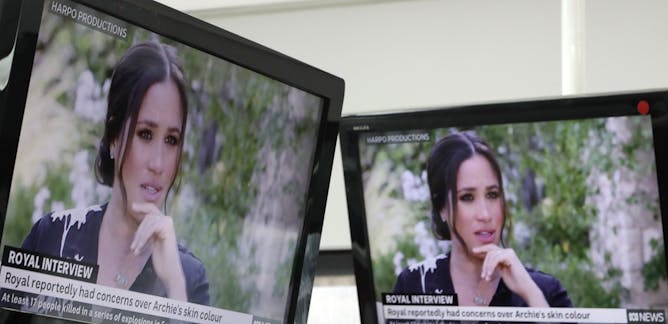
Meghan, the Duchess of Sussex, is seen being interviewed by Oprah Winfrey.
(AP Photo/Rick Rycroft)
Kimberley Ducey, University of Winnipeg; Joe R. Feagin, Texas A&M University
Canadians who support the monarchy will likely not be swayed by the Duke and Duchess of Sussex’s revelations about racism within 'The Firm.' Instead, they'll become more defensive of the Royal Family.
|
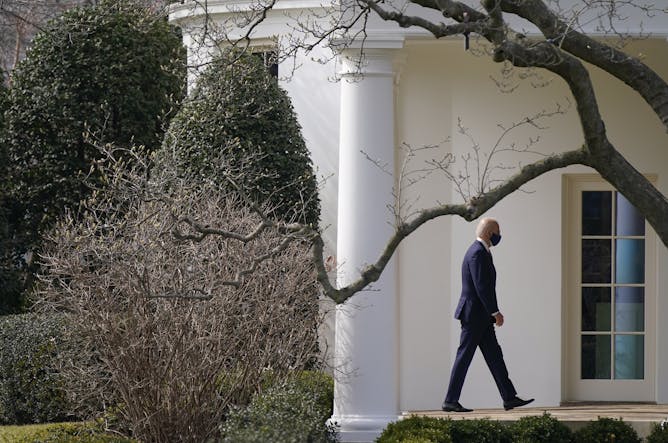
U.S. President Joe Biden walks to the Oval Office of the White House in Washington on March 9, 2021.
(AP Photo/Patrick Semansky)
J.M. Opal, McGill University
Since his January inauguration, Joe Biden has demonstrated that he understands how the modern U.S. presidency works, both in terms of policy and the nation’s psyche.
|

While people may be familiar with precious metals, which are often at the heart of conflicts, there are also metals that are essential to good health.
(Shutterstock)
Michel Jébrak, Université du Québec à Montréal (UQAM); Jack-Pierre Piguet, Université de Lorraine; Yann Gunzburger, Université de Lorraine
Iron fights anemia. Bismuth relieves gastric problems. Lithium acts against depression and gold can treat rheumatoid arthritis. Metals are precious tools for good health.
|
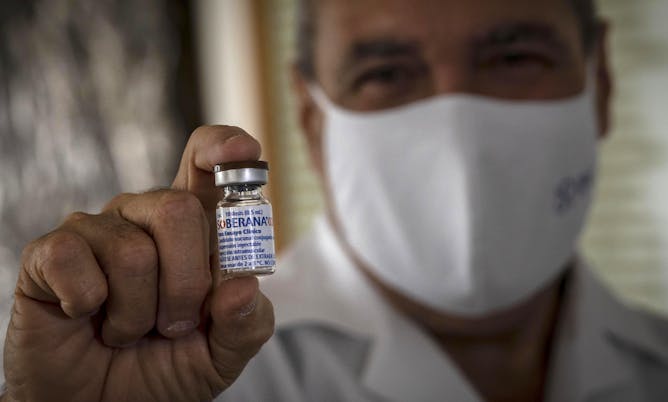
A doctor shows an empty vial of the experimental Soberana 02 vaccine for COVID-19 being developed at the Molecular Immunity Center during a media tour of the facility’s vaccine production in Havana on Feb. 25, 2021.
(AP Photo/Ramon Espinosa)
Jennifer Ruth Hosek, Queen's University, Ontario
Cuba's access to internationally produced vaccines was nearly impossible due to the U.S. blockade. Its decision to make its own vaccines stands to pay off handsomely.
|
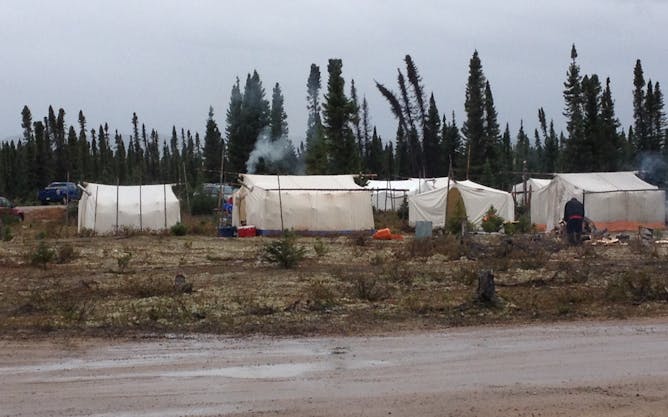
Gathering on the land: Indigenous ways of knowing can ensure that communities reclaim and promote health and healing.
(Melody Morton-Ninomiya)
Janet Jull, Queen's University, Ontario; Alexandra King; Angela Mashford-Pringle, University of Toronto; Cheyanne Desnomie, University of Regina; Darrel Manitowabi, Laurentian University; Jennifer Walker, Laurentian University; Lindsay Brant, Queen's University, Ontario; Malcolm King, Simon Fraser University; Melody E. Morton Ninomiya, Wilfrid Laurier University; Moses Gordon, University of Regina; Priscilla Ferrazzi, University of Alberta
Many researchers may lack resources to guide them in conducting research that is equitable, inclusive and respectful of diverse Indigenous knowledge, ethics, practice and research sovereignty.
|
La Conversation Canada
|

Professeurs et étudiants ont été bousculés par les nouveaux formats d'évaluation et d'enseignements. Le passage des examens en format virtuel a soulevé d'importants enjeux d'intégrité académique.
shutterstock
Eric Champagne, L’Université d’Ottawa/University of Ottawa; Aracelly Denise Granja, L’Université d’Ottawa/University of Ottawa
En quelques jours, les universités ont dû transférer leurs cours en ligne. Cette transition forcée laissera des marques et les pratiques d’enseignement ne reviendront jamais tout à fait comme avant.
|
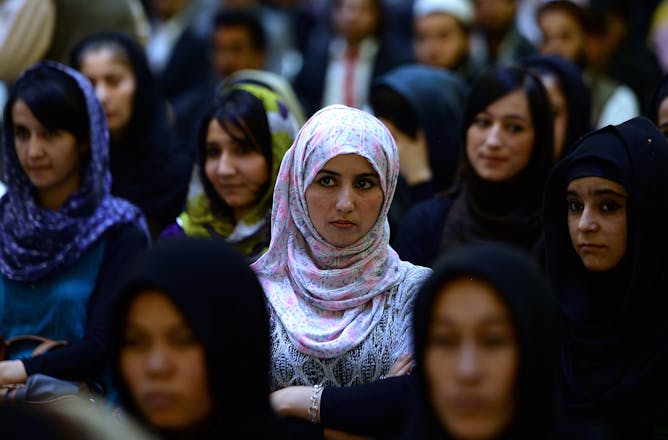
Des membres du public écoutent le discours de la parlementaire afghane Fawzia Koofi en 2014. L'accès des femmes à la politique a beaucoup augmenté après l'éviction des talibans en 2001.
Sha Marai/AFP via Getty Images
Mona Tajali, Agnes Scott College; Homa Hoodfar, Concordia University
Les Afghanes craignent que les pourparlers entre le gouvernement et les talibans annoncent un retour de ces extrémistes qui, dans les années 90, les ont contraint à la pauvreté et à l'asservissement.
|
COVID-19
|
-
Anthony R Cox, University of Birmingham
Suspensions of the AstraZeneca vaccine may dent confidence and will slow down coverage – arguably creating a greater risk to public health.
|
|
Arts
|
-
Elizabeth Little, Deakin University; Kristine Moruzi, Deakin University
Millions of people are reading young adult fantasy novels like Twilight or A Court of Thorns and Roses. But the way sexual consent is depicted in these can be confusing or even harmful.
|
|
Business + Economy
|
-
Michael J. Meurer, Boston University; Janet Freilich, Fordham University
Too many patents and too little information about them makes it hard for the system to weed out patents that unfairly block inventors.
|
|
| |
| |
| |
| |

|
| |
| |
| |
| |
| |
| |
| |
| |
|
|
|
|
|
|
|